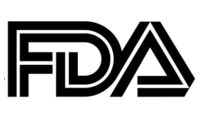The various regulations of the U.S. Food and Drug Administration’s (FDA) Food Safety Modernization Act (FSMA) will affect how business is conducted along the entire produce supply chain, from farm to fridge and freezer to fork.
In mid-September, FDA published the Preventive Controls for Human Food (PCHF) Rule and the Preventive Controls for Animal Food (PCAF) Rule. As of press time, FDA has just published the final Produce Safety Rule, Foreign Supplier Verification Program (FSVP) Rule and the Accreditation of Third-Party Auditors Rule. The remaining two major rules, Mitigation of Intentional Adulteration Rule and Sanitary Transportation Rule, are expected by early 2016.
Now, after the more than four years these rules have been in development, you might very well be asking—Who will be providing training for the food industry to ensure that everyone who seeks to comply with these rules understands the new requirements?
The answer is FDA is proposing a public-private partnership for the food industry, as training will be an important component of successful FSMA implementation. Every FSMA rule, whether final or only proposed, has some type of required training component. While the food industry is responsible for getting trained on these new FSMA rules, FDA has recognized the importance of facilitating that training. As a result, FDA proposed a plan for the development and delivery of FSMA implementation training.
The comprehensive “FDA Strategy for FSMA Training” has a number of key components:
FSMA alliances. The FDA funded the development of three important public-private partnership FSMA alliances to developing training curriculum and programs to help domestic and foreign food businesses understand the new requirements of the Preventive Controls rules and the forthcoming Produce Safety rule. The three FDA-funded FSMA alliances are developing model, standardized curricula intended to meet the needs of, and be used by, the majority of those affected by the FSMA rules.
The three FSMA alliances are developing “train-the-trainer” programs to ensure that lead trainers understand the FSMA rules and are prepared to deliver the curricula. Lead trainers—selected based on their education, work experience and training experience—will then deliver training and be able to issue certificates of completion to course participants.
Alternate training options. FDA has also acknowledged that a “one size doesn’t fit all” approach to FSMA implementation training would likely be ineffective. As a result, the FDA is funding cooperative agreements that will develop training options specifically for local food production systems and tribal operations. The FDA intends that the standardized curricula being developed by the FSMA alliances and the alternate curricula being developed through cooperative agreements are the only ones that will be officially recognized by the FDA.
Cooperative agreements. Together with the National Association of State Departments of Agriculture (NASDA), the FDA entered into a 5-year cooperative agreement that brings together a range of state partners to collaboratively plan implementation of the Produce Safety Rule. FDA and NASDA are working together to develop a set of best practices for implementation of the Produce Safety rule. NASDA will help facilitate industry training and also play a role in the delivery of training to state regulators.
National and regional centers to support training. The FDA is partnering with the U.S. Department of Agriculture’s National Institute of Food and Agriculture (NIFA) to provide grants to fund training opportunities as mandated by FSMA. FDA awarded the International Food Protection Training Institute (IFPTI) a grant of up to $600,000 over three years to establish the national coordination center, which will lead coordination of curriculum development and delivery of education outreach to operators of farms, small food processors and small fruit/vegetable merchant wholesalers. The national coordination center will coordinate and support the delivery of standardized and/or alternate training curricula through regional centers that will be established in the South, West, North Central and Northeast regions of the United States. The regional centers will work with representatives from non-governmental and community-based organizations, as well as representatives from cooperative extension services, food hubs, local farm cooperatives and other entities that can address specific needs of the communities they serve.
International FSMA training. FSMA training will also encompass various members of the food industry, including domestic and foreign food producers and domestic importers. The FDA will work with partners around the world, including the FSMA alliances, regulatory counterparts and multi-national organizations, to promote training to the global community of food suppliers.
FDA and industry stakeholders have put a great deal of time, effort and thought into development of the new FSMA regulations. Appropriate and adequate training to implement these rules is equally critical in the effort to protect public health and assure consumer confidence in our nation’s food supply.



